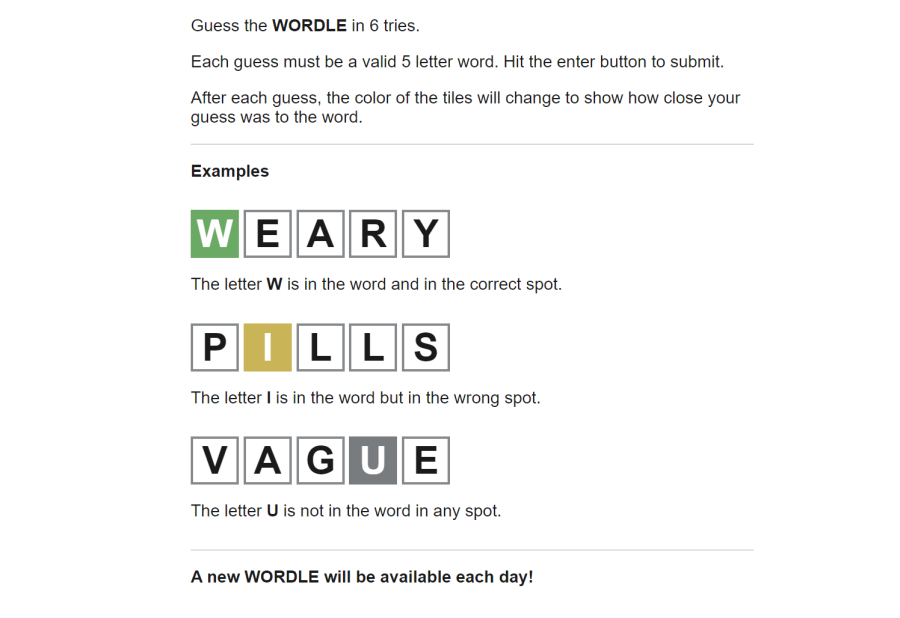Did You Get the Wordle Today?
The Increasingly popular online puzzle Wordle is sweeping campus, but to some it’s much more than a game.
For the past few months, Wordle has become an integral part of people’s daily routine all over the English-speaking world.
Natalie Stott, senior student council member, finds Wordle to be of great importance to her morning routine, arguing that it gets her brain going for the day.
“I had ‘We The People for [AP] Gov and I was up pretty early and that’s like the first thing I thought to do because it kind of woke me up,” she said.
Wordle has become incredibly viral among online users of all ages, creating an immense collective network around the world. More than a game, it has become a social matter.
Emily Hamman, two-year sophomore from Marlborough, Mass., claimed the reason behind her interest on the game at first relied on its constant reappearance on social media among her friend groups.
“I got into the game because I saw so many videos about it on TikTok, and so many kids told me I’d love it,” she said. “I knew I had to give it a try.”
Benning Johnson, a senior from Boston, Mass, said he started playing Wordle when his dad introduced it to him after learning of it from his coworkers.
Josh Rilla, a new English teacher, enjoys Wordle because of “the communal aspect of it,” and finds it interesting how much it has caught on.
Rilla was introduced to the game by a family member. Soon after, a text chain was established among his family, expanding up to a dozen of members, and setting a sort of competition among them.
“We have inside jokes now. We’ll send our results and like it, or dislike it if someone is doing really well,” he said.
Rilla, who has a 10-month-old daughter, usually solves the Wordle while playing with his daughter in the morning.
Emily, among several other users, tries to complete the puzzle early in the day to be included in conversation later on.
“It is super fun to talk about with other people who play Wordle,” she said. “So I try to do it as early as possible to stay in the loop.”
Initially created as a present for a partner, Josh Wardle’s puzzle game has recently hit more than three million daily players from all over the world. The game was launched in October, 2021. Only two months later, 300,000 people were playing it regularly. Due to its rapid success, as of Monday, January 31, it is now the property of the New York Times, which bought it for a sum in the low seven figures, according to NPR.
Part of Wordle’s great success and recurrent audience relies on limiting its users to a single play per day, tapping into the players sense of accomplishment and pride. The platform updates at midnight and provides a new puzzle every day.
Senior Natalie Stott, who also solves the New York Times mini crossword as part of her morning routine, is driven by the notion of reward that comes after completing a challenge.
“It feels really good to finish it, it feels like I accomplished something,” she said. “A lot of times I do it at breakfast when I’m writing my ‘Nat’s News’ email,” she said. “If I need to come back to it, I’ll do it between classes.”
In Wordle, simplicity is key. To solve the puzzle, users take only as long a few minutes, making it easy to incorporate into a daily routine.
Sarah Levine, Middle School and AP 12 English teacher, is always eager to solve the daily puzzle.
“I like to do it early in the morning or right after my last class of the day,” she said. “It’s something to look forward to.”












